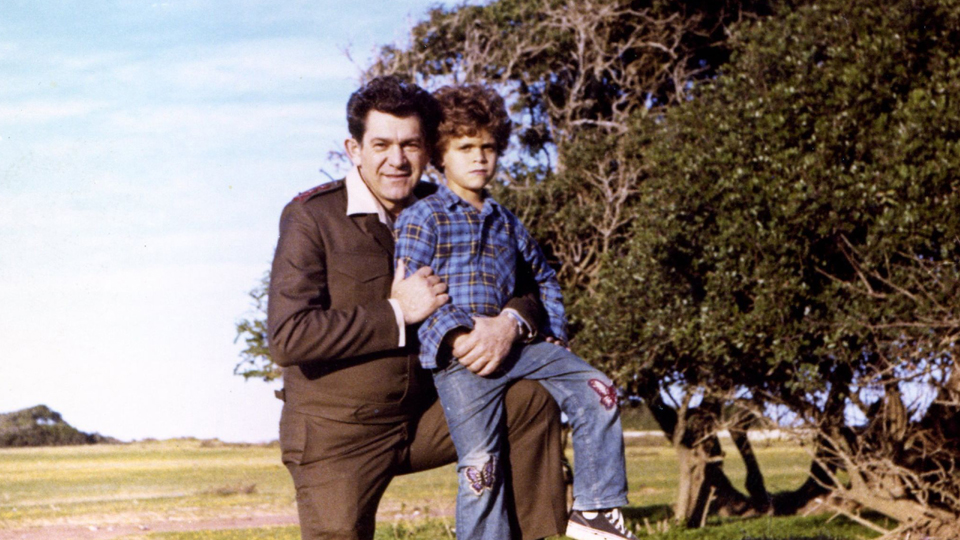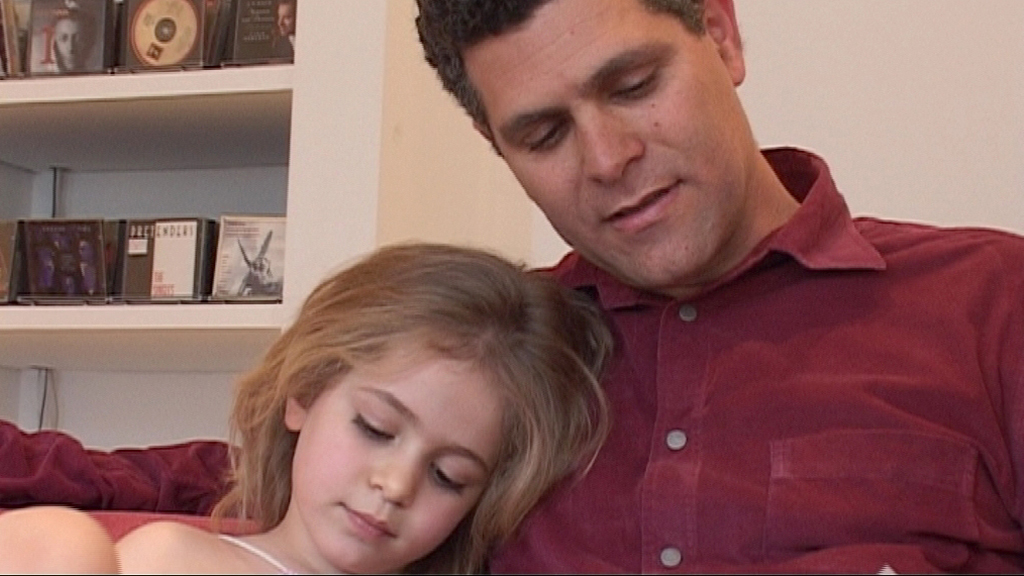
A film by Yair Elazar

www.vimeo.com/ondemand/missingfather



|
30 years after the death of Lieutenant General David Elazar (Dado), his son, Yair, takes a journey in his footsteps. His aim is to penetrate the web of myths shrouding his father's memory; He wants to stop living in his shadow, and to overcome his anger at him, for always putting the Army first. As the journey advances, Yair comes to understand that his father did not differentiate the private from the public; The military was his life: a course of meteoric ascent ending with a painful downfall. After spending many months with his father in the editing room, Yair grows to understand his choices, and is finally able to say goodbye. |
|
Director and Producer: Yair Elazar Script and Research: Tal Elazar Editors: Tal and Yair Elazar Cinematographers: Amnon Zalait and Ofer Frant Sound: Amos Zipori Music: Avi Benjamin Sound Designer: Ram Grafman
|
A Ballad to the Naïve
Gafi Amir, Yediot Acharonot
Yair Elazar's film, "Missing Father", broadcast yesterday on Channel 1, was a sincere and lucid requiem. Elazar returned to his dead father Dado, Chief of Staff during the Yom Kippur war that died of heartbreak. In the process, he broke the viewers' hearts.
Dado's last words were: "this thing, tennis, really makes me happy". Minutes later he died suddenly of a heart attack. His family, like many others, attributes his death to the injustice that was inflicted on him by the Agranat Committee. For Yair, who was 10 years old when his father died, the injustice is, as can be expected, more complex.
"When I was a baby, my father was a celebrity", he says in a moving opening monologue. "His pictures were printed on postcards and key chains…I wanted to be just like him…Father was the commander of all the other fathers."
At the same time, Channel 2, the competing channel, broadcast – oh, the irony – a piece of nonsense about kids of celebrities, that was dubbed "A Documentary Film". A Document of Disgrace, perhaps. The courage with which Elazar navigated between the mists of his childhood only emphasized the stupidity of the conversations with the son of Yehuda Barkan about his life in the gossip columns.
Young Elazar could not have chosen a more appropriate contra to illustrate the difference between the pre-Dado era and the era after him. His clear voice yesterday created a first and sane draft for the pantheon.
Father Was Never Wounded
Television
Yaron Frid, Haaretz
Yair Elazar delved into the depth of his being that is also our being, in order to finally make peace with his father, Dado, the myth and its disenchantment. In a film that is bare, sober, courageous and deeply touching, the son, who bears a painful resemblance to his father, whose portrait at the height of his fame was printed even on key chains, embarks on a voyage of reconnaissance with the man he lost at age 10, a man that everyone, so it seems, knew better than him.
He grasps at every scrap of information and gossip, every observance and anecdote; he immerses himself in thousands of hours of archives and breaks down when Zvika Zamir, former Head of the Mossad, lets him hold a pair of glasses he lifted from Dado's living room and kept all these years as an intimate memento of him. The son doesn't yield and doesn't make allowances – he wants to know about the infidelities, the frustrations and weaknesses, aspires to find a "human father" and not a perfect one, and relives all the old sorrows; he remembers only too well his fathers absence and the fact that he always preferred Israel (that was perhaps his adoptive mother, as he was orphaned as a child) over his family, only to feel abandoned and betrayed by it at the end of his life.
"Father was never wounded, right?" he asks his mother, but all the other wounds are there, burning as ever. In a letter the boy gave his father in a moment of anger ("with me, too, he insisted on winning every battle") he wrote: "Dad, you're a bastard, a dick, a son of a bitch, and that's why I'm not talking to you. From Yair." (The original is full of childish and heart-rending spelling errors). Dado died hurt but "happy", says Talma, his impressive wife that tells of their private whistle (Dvojac) at the beginning of their romance, and explains with simplicity that "he was almost never there", when it is only too clear that his bigger than life presence has not waned to this day.
His last words were: "This thing, tennis, really makes me happy". His son felt his whole life the rage his father felt after the Agranat Committee and wanted to avenge him. The account between them was also left unsettled until this film. Elazar realizes that he inherited from his father "the sad eyes, the vulnerability, the strange combination of confidence and affront…the mark of the orphan which I know from myself". To his wise little daughter he says "I miss him quite a lot…you always need your dad".
Orna Ben Dor suggested in "Communications Case" to anyone who can, to make a film about his parents and through it solve his problems with them. Not everyone can, of course, but in this case, at least, the suggestion proves itself. The film ends with great closeness, belated but whole, and with unconditional love, that brings the son to say Kadish on his father's grave for the first time in his life. And there was much more, but the tears, damn them, made it difficult to concentrate.
Music